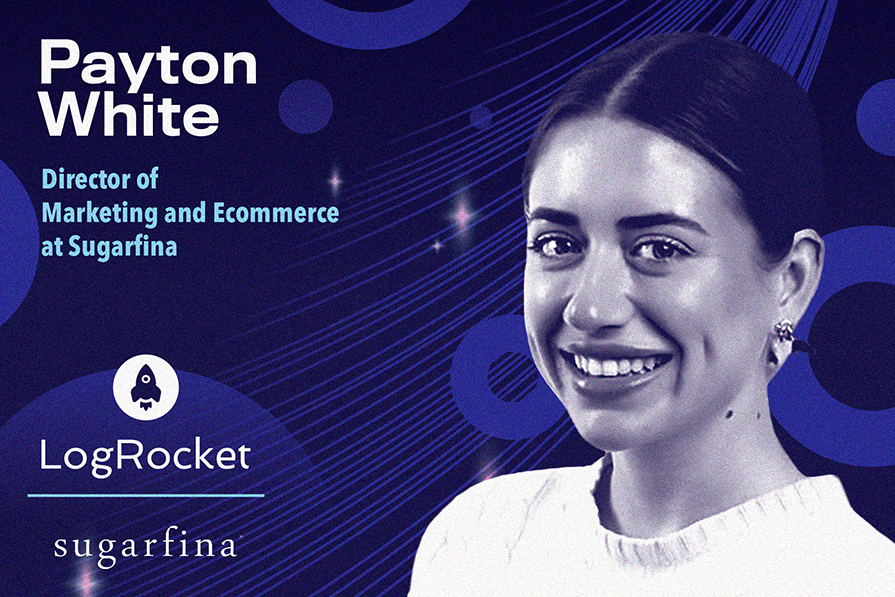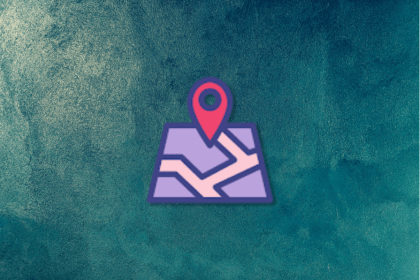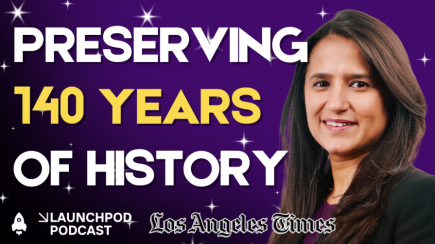Payton White is Director of Marketing and Ecommerce at Sugarfina, a luxury candy company. With a background in design, Payton held multiple creative internships at companies such as the Dallas Mavericks, Agency Entourage, and Moxie Creative. She worked as a creative assistant at DoSayGive before joining the marketing team at Sugarfina, where she now leads all marketing and ecommerce initiatives.

In our conversation, Payton talks about how the key to having a consistent experience — both in-store and online — is maintaining the feeling that the brand wants to evoke in the customer. She discusses how her team redesigned its “Design Your Own Bento” to better optimize customer experience, as well as how they leveraged a Lunar Year New theme to grow awareness and sales. Payton also shares the importance of SEO when growing an online presence.
Our 2024 Lunar New Year collection, which has been a growing collection for us. Last year I led the design of our 2024 Lunar New Year collection with two of my colleagues. We were thinking “How do we make something new? How do we make something innovative and creative that also speaks to current trends?”
I noticed a growing interest in products related to astrological zodiac signs. For example, brands were coming out with candles for each sign, like Aquarius, Libra, etc. The Chinese Zodiac is a key messaging tactic during the Lunar New Year, and 2024 is the year of the dragon. I thought, “How cool would it be to create a box that you can spin and go to your specific animal?” The box was designed to reveal the birth years associated with each animal, and when you open it up, each animal has its own candy and a description with the personality traits associated with it.
For example, for the dragon, we have chocolate hazelnut eggs coated in shiny, white chocolate and dusted with what are called dragon eggs. The product was well received — it was the first item of the collection to sell out. I was really proud of it. It was an innovative way to tie candy to people and their characteristics.
Yes, because candy development and product development takes a very long time. We had to look into which types of candy we had and were able to put in the product, as well as how we could tie them to a personality trait or an animal. It was challenging at times, but we got creative with it.
I started out doing fine arts, but I had a teacher tell me, “Your work is so linear — go into graphic design,” so I completed some independent graphic design studies and grew a career in graphic design from there.
The main point of graphic design is to make things look nice, but also to communicate information in an easily comprehensible way. Marketing and ecommerce have similar goals. You’re selling a product and it’s on your website, so how do you make it look visually appealing? How do you make it beautiful while also making it easy for customers to navigate?
On the social media marketing side, we curate Sugarfina’s Instagram page to look like a magazine spread. I want it to be gorgeous and inspirational and reflect the season. If it’s spring, you’ll see bright colors. During the holiday season, there are a lot of reds, greens, blacks, and golds. I always try to make our products and marketing materials look as visually appealing as possible so people view them as not only candy but also art.
For ecommerce, there’s the added component of making the customer experience as easy and as seamless as possible. There’s a balance between the two — making things look visually appealing and being easily shoppable. They definitely go hand in hand. I have a very strong opinion of what looks nice, but feedback from others is so important. I work closely with others to create a beautiful experience.
Establishing a strong SEO strategy is really important. We’re very lucky that Sugarfina is a well-known brand, so we have a strong and loyal customer base. However, to grow and attract new customers, we need to understand when and what people are searching for. If someone’s searching for candies and gummies, you have to have an SEO strategy in place that enables you to show up at the top of the search page when a consumer searches for something that you offer, even if they have never heard of your brand.
That gives you such great visibility to a new audience. It’s very important when growing an online presence. They could be searching for something as general as “candy” or something as specific as “espresso martini candies.” SEO is an important vehicle to showcase what you offer and attract customers to your brand who may not know that you offer these specific products. We’re focusing heavily on SEO right now.
We have a great blog. It’s called Something Sweet, and we highlight seasonal items, new candies, etc. We also do interviews with artists that we’ve been collaborating with. Another key area for our SEO positioning is our product descriptions.
At Sugarfina, there are two ways in which we leverage product decisions, and marketing comes from those. One is our product data. We review our planograms (POG) list quarterly to see which candies people are gravitating toward and which are moving down in popularity. If a candy hasn’t been performing well, we determine whether or not we want to keep it.
The second source is customer feedback. We offer an annual loyalty survey to our most engaged customers. We’ll ask what type of candy they’re looking for and if there are any other flavors that they’d like to see. We also ask if they’re interested in collaborations and if they’d like to see us partner with a particular beauty brand, alcohol brand, etc.
We talk to customers through Instagram as well. We can talk to them one-on-one on that platform and ask them questions through direct message, which is awesome. This qualitative feedback allows us to see the sentiment and customer feeling behind the numbers we’re reviewing on our POG list. We pivot and adjust our approach for better outcomes based on what we hear.
We always get a ton of requests for cocktail and alcohol brand collaborations in our loyalty survey. Based on this, two years ago, we sought out a vodka brand called Chopin Vodka and partnered with them to create martini-inspired flavors. People were really happy with the resulting candies.
We recently restructured our DYOB (Design Your Own Bento) program to make it a little easier for customers. Before, you would select your box by going onto the specific website page, selecting the size and design, and clicking through a few pages to look through the candies we offer.
We replaced the multiple pages of candies with a scrolling, one-page carousel. Now, you can see all the candies at once, which is helpful. You have your empty box, select a candy, and it shows up on the right-hand side inside the box. It is pretty intuitive. Fewer clicks has translated to an increase in DYOB sales.
Another way that we’ve optimized the site to be as easy as possible for customers is to improve our search capabilities. You can type the color “red” into the search bar, for example, and all the red candies will populate. You can also search by country or region. Our candy is made all around the world, so you can type in France, and all the candies from France will show up. Customers may not be familiar with our specific product names, so we tried to think through ways people would search. The search experience is now easier and more intuitive.
We saw a pretty large improvement in sales and conversion right after this initiative was made. This specific product is not as seasonal, so our DYOBs are usually on our top 10 products of the week.
They’re big. Just recently, we’ve been seeing a trend in custom orders and boxes, specifically through Google Ads. A lot of people are searching for that right now, which is interesting. We have a customization program that customers can reach out to directly. This is popular for larger companies that want to place large orders. They can customize the label, the Bento, and have their branding on it. That is a unique way to personalize.
Our loyalty program has given us a big opportunity. We have a really robust program. We’re able to offer these customers exclusive offers, special event invitations, and product trials. Personalized messaging and programs like this can help make your most engaged customers feel very valued.
The key to having a consistent experience both in-store and online is maintaining the feeling that we want to evoke in the customer. We want the customer to feel like a grown-up in this special, beautiful candy store and have a feeling of luxury, playfulness, and whimsicality. We keep that top-of-mind and make sure that the whole company can communicate that and evoke that feeling in the same way.
I work closely with the director of retail, who I see every day. We meet regularly to plan what we’re doing online and in-store. Fortunately, candy is very seasonal so we always have a direction that we’re heading toward.
When we do marketing campaigns, we have a kickoff with all team members — our creative team, photographers, product designers, retail associates, etc. We all brainstorm the best method to kick this off and what the photography and signage should look like. We’re constantly asking, “How do we make this pretty and special?”
I think the way that companies communicate will continue to be important. How do you relate to customers in a way that makes it feel like you’re talking directly to them? Or how do you make the experience personalized so customers feel special and cared for by your brand? Playing into that as much as possible, now and in the future, is going to make you stand out. For example, a customer might think, “I remember when I was getting married and Sugarfina reached out to me. They offered to send me champagne bears for my bridesmaid’s proposal boxes.”
Evoking feelings is always important. Getting to know your customers plays a big role in understanding how they shop with your brand, how they view your brand, and how they interact with you. Personalization and customer sentiment will always be important.

LogRocket identifies friction points in the user experience so you can make informed decisions about product and design changes that must happen to hit your goals.
With LogRocket, you can understand the scope of the issues affecting your product and prioritize the changes that need to be made. LogRocket simplifies workflows by allowing Engineering, Product, UX, and Design teams to work from the same data as you, eliminating any confusion about what needs to be done.
Get your teams on the same page — try LogRocket today.

Maryam Ashoori, VP of Product and Engineering at IBM’s Watsonx platform, talks about the messy reality of enterprise AI deployment.

A product manager’s guide to deciding when automation is enough, when AI adds value, and how to make the tradeoffs intentionally.

How AI reshaped product management in 2025 and what PMs must rethink in 2026 to stay effective in a rapidly changing product landscape.

Deepika Manglani, VP of Product at the LA Times, talks about how she’s bringing the 140-year-old institution into the future.